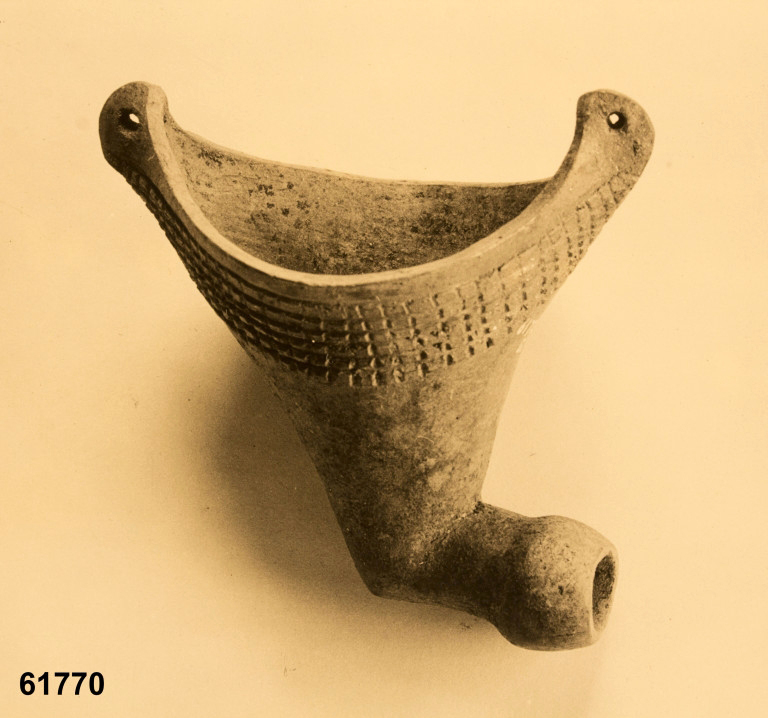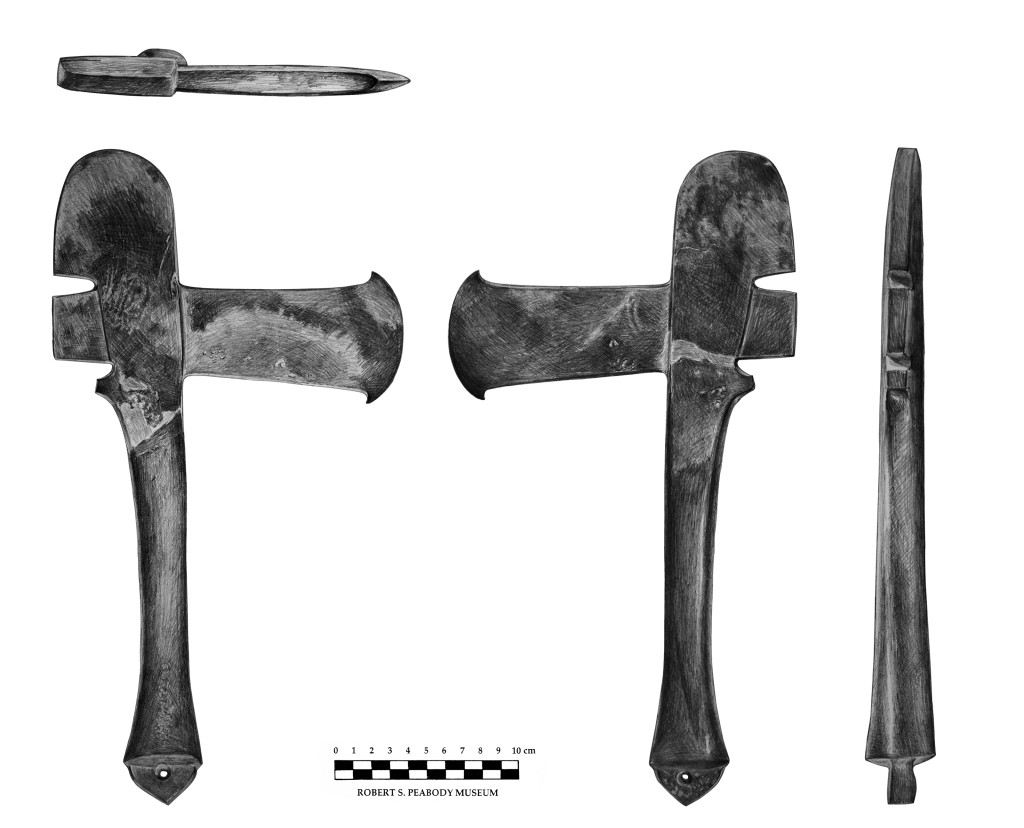By W.A. Demers
ANDOVER, MASS. — Since the early 1990s, the Robert S. Peabody Institute of Archaeology has been searching for objects missing from its collection, according to Dr Ryan Wheeler, director of the institute. Among the missing items are carved and decorated stone, shell and ceramic pieces from sites in Georgia and Maine.
The Peabody recently celebrated the return of three missing artifacts, most notably an Etowah monolithic axe. The axe, along with several other artifacts, was taken from the Peabody Institute on the campus of the Phillips Academy sometime in the 1980s. An Indiana man paid $350,000 for the rare Native American axe from the 1400s, only to find out it had been stolen from the Peabody.
“They took sort of the masterpieces,” Wheeler told the Boston Globe.
“Over the course of 2018 and 2019 we have recovered three objects,” Wheeler told Antiques and The Arts Weekly. “The collector we heard from in January 2018 was Thomas Rachels of Cordele, Ga. He had purchased a spatulate celt that had come from our Etowah collection. He returned the celt to us and also provided the names of prior owners. The FBI Art Crime investigators spoke to those owners and traced two additional objects — a decorated shell gorget that was returned to us in November 2018 — the person who had it surrendered it to the FBI — and the monolithic axe, which was in the possession of John Morgan of Indiana. He had paid a Kentucky dealer $350,000 for it in 2014, I believe. There was discussion between our school, Morgan’s attorneys and the dealer, which ultimately led to the return of the axe in early June 2019.”
At least three artifacts remain missing: two engraved shell disks and one ceramic smoking pipe. A $2,500 reward is being offered for information that leads to the recovery of the missing artifacts. The FBI crime team is working with the institute to find the other three missing pieces, as well as trying to figure out who took the pieces and how.

Effigy pipe. Excavated by Warren King Moorehead in 1927 from Grave 12, Etowah site (9BR01), Cartersville, Bartow County, Ga, USA. The ceramic smoking pipe is an effigy of a basket, canoe or pottery vessel. Approximately 3 inches high by 3 inches wide. Native American Mississippian culture circa CE 1400-1600.
“They were making the kinds of choices that someone that was a connoisseur would be making rather than a sort of smash-and-grab kind of thing,” Wheeler told the Boston Globe.
The axe, which was returned, has been re-appraised and is now estimated to be worth around $450,000.
According to Wheeler, these objects were excavated at the Etowah and Little Egypt sites in Georgia between 1925 and 1928 by Warren K. Moorehead, then-director of the Peabody Institute. The Etowah and Little Egypt sites date from CE 1000 to CE 1550. Southeastern sites of this period are linked to modern-day Native American tribes through the Creek language. Many of the objects are funerary belongings and subject to repatriation under the Native American Graves Protection and Repatriation Act (NAGPRA).
Anyone having information about these objects may contact special agent Geoff Kelly at the FBI at 1-800-225-5324. Tips may also be submitted online at tips.fbi.gov.









